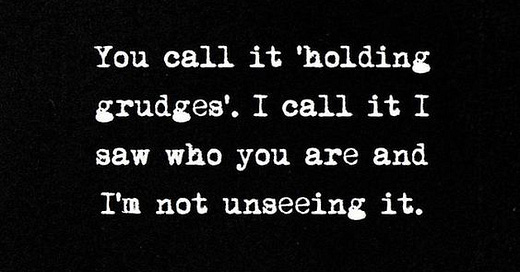If you've been asking yourself, "Why does this feel impossible?" or "Why can’t I just leave?" — you’re not alone. For survivors of emotional abuse or coercive control, even thinking about leaving can feel like trying to breathe underwater.
This guide is here to name what you're experiencing and remind you that the weight you're carrying isn't weakness—it's the result of surviving something that was never safe.
You don’t need to have it all figured out.
You just need to know this: It makes sense that it feels hard. And you’re not alone in it.
If you've ever said, "It just feels so hard, but I don't know why," this guide is for you. That heaviness? That fog? That feeling like you're drowning even when nothing looks "wrong" on the outside? It's not weakness. It's trauma.
1. Emotional Abuse Makes Everything Heavier
Abuse isn't always loud or visible. Sometimes it's quiet erosion—being blamed, doubted, shamed, dismissed, or manipulated so often that you start to question yourself.
Over time, your system begins to shut down just to survive.
You freeze when you need to act
You fawn to avoid conflict
You feel exhausted all the time, even when nothing has "happened" that day
This is not laziness. It's survival mode.
2. Your Nervous System Has Been Hijacked
If your body feels tired, numb, or anxious for no clear reason, it's likely because your nervous system has been running on high alert for too long. In abusive relationships, your body learns to anticipate danger—even in silence.
So when you think about leaving, or making a change, your whole system might freeze.
It’s not because you don’t want freedom. It’s because your body doesn’t believe it’s safe yet.
3. You're Not Just Leaving a Person. You're Leaving a Pattern.
When you think about leaving, it’s not just about packing a bag. You’re detangling from:
A cycle of manipulation and control
A version of yourself you had to become to survive
A belief system that told you love had to hurt
Leaving forces you to grieve a relationship and a former self.
That’s why it feels so massive.
4. Abuse Trains You to Doubt Yourself
You were taught to:
Second-guess your instincts
Over-explain your feelings
Take blame for someone else's behavior
So now, when you're trying to listen to your gut, it feels foggy. Wrong. Dangerous.
But it's not. You're just slowly starting to hear your own voice again.
5. You’re Not Just Tired—You’re Disoriented
It’s hard to take action when:
You’ve been isolated
You haven’t had space to think clearly
You’ve been trained to prioritize someone else’s needs over your own
This is why even small steps—calling a lawyer, looking for a place to stay, telling a friend—can feel like climbing a mountain.
You're not weak. You’re carrying the weight of someone else's control.
What to Do When It Feels Too Big:
Pause and name it: "This feels hard because I’ve been surviving something depleting."
Take one step: Not ten. Just one. A call. A saved number. A journal entry.
Let someone safe in: You don’t have to hold all of this alone.
Remember: You are not crazy. You are coming back to yourself.
If this feels like your story, you don’t have to figure it out alone.
This is the work I do every day—with survivors who are exhausted, confused, and ready to stop second-guessing themselves.
If you’re here, you’re already waking up.
If it feels too big, too foggy, or too painful to untangle on your own, that makes sense. It’s not a sign you’re broken—it’s a sign you’ve been surviving something that’s tried to erase you.
✨ You can start small:
— Book a Clarity Call to talk through what you’re facing
— Explore the Emotional Abuse Breakthrough Course if you're in the thick of it
— Follow my Podcast for ongoing insights, tools, and real stories
— Or browse the Resource Library if you need something to ground you today
You are not too much. You are not making it up. You are not alone.
This is your invitation to come back to yourself—one clear, supported step at a time.






Bookmarked. Damn this quote is so good.